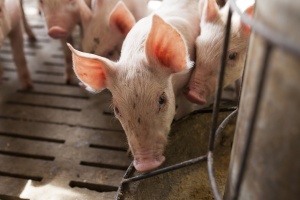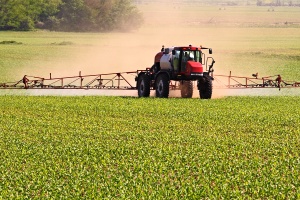Why Pork Should Be Your Next Healthy Protein Pick
If you’ve been eyeing that ground pork at the meat counter, you’re in good company. With ground pork, the opportunities are endless; from pork chili to pork pot pies, check out these must-try recipes. But you’re not limited to just ground pork. Pork is extremely versatile, flavorful – and packs a lot of nutritional value. So, we’re looking through the lens of nutrition and farming to share why pork should be your next healthy protein pick.
Protein that’s good for you, from a nutrition perspective
For many, incorporating high-quality lean protein into their diet is a way to get important nutrients they need while delivering the flavor they crave. Pork is a great option for those looking to consume meat while limiting saturated fat. In fact, pork tenderloin is just as lean as skinless chicken breast, and eight cuts of pork meet USDA’s guidelines for “lean.”
Many cuts of fresh pork are leaner today than they were two decades ago. Farmers and other pig health and nutrition professionals have incorporated research and technology to raise pigs that produce leaner, higher-quality pork. Here are some other advantages of eating pork:
- Get your vitamins: Pork provides important vitamins and minerals your body needs, some of which are under-consumed according to current dietary recommendations. A 3-ounce portion of pork tenderloin is an “excellent” source of protein, thiamin, vitamin B6 and niacin, and a “good” source of zinc.
- Keep a check on fat content: Today’s pork is 16% leaner and 27% lower in saturated fat compared to 29 years ago.
- Lean protein, 8 ways: Eight cuts of pork meet the USDA guidelines for “lean,” containing less than 10 grams of fat, 4.5 grams of unsaturated fat and 95 milligrams of cholesterol per 100 grams of meat.
- Heart healthy: The tenderloin and pork sirloin roast meet criteria for the American Heart Association Heart Checkmark, meaning they contain 5 grams or less of fat, 2 grams or less of saturated fat and 480 milligrams or less of sodium per label serving.
- Carrier food that helps you eat healthier: Pork helps you increase your intake of nutrients such as choline, iron and potassium, nutrients that Americans struggle to eat enough of.
Here’s a go-to tip: When shopping for lean pork, look for the words “loin” or “chop,” as these will be your leanest cuts.
Protein that’s good for the planet, from a farming perspective
Pig farming has come a long way over the years, thanks to advances in technology and farming practices, which ultimately help farmers provide nutritious, affordable protein for all our families – and in a way that’s more sustainable for our world.
Just like humans, how pigs live and eat makes a difference in their overall health. Here’s how:
Modern housing
Today’s barns are designed in a way that protects pigs from injury, illness and predators. And beyond the barn design, technology helps us monitor and tweak things that optimize pig health.
For example, we can control the climate in barns, giving pigs the perfect temperature to keep them healthy and happy. Pigs are particularly picky about the temperature. Older pigs like it at about 70 degrees, while younger pigs need it even warmer – just like human babies.
Customized diet
Pigs have access to food and water 24 hours a day, seven days a week. What goes into the feed is carefully considered by our nutritionist, and it varies by stage of life. No matter what, our pigs get a complete diet of nutrients and nutrient groups for:
- Energy
- Protein and amino acids
- Essential fatty acids
- Minerals
- Vitamins
Improved sustainability
The combination of better housing and better feed also means better for the planet. The last six decades have seen major strides in sustainability. Per pound of pork, we’ve reduced:
- Land use by 76%
- Water use by 25%
- Energy use by 7%
- Carbon footprint by more than 7%
Raising pigs today contributes less than 1% of U.S. greenhouse gas (GHG) emissions. We feel good about how the pigs are cared for on our farm – and ultimately the pork that contributes to sustainable, healthy protein needs for my family and yours.
Pork is a smart choice for your health and well-being. Get more tips on how to shop for and prepare pork.










0 Comments